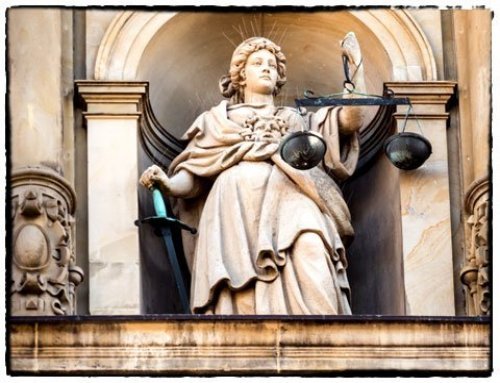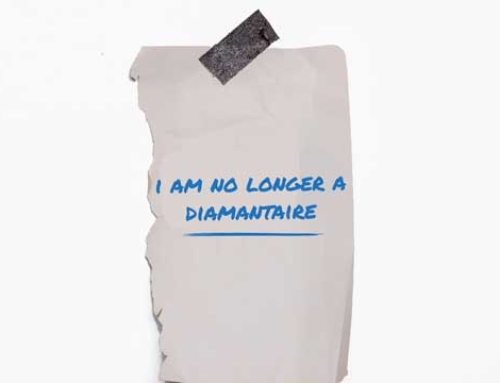Is this luxury watch real? Do the diamonds come from a mine where human rights have been violated? In order to clarify questions of this kind when buying jewellery and watches, manufacturers are increasingly relying on blockchain technology.
In order to clarify questions of this kind when buying jewellery and watches, not only certificates on paper, but also blockchain technology offer a helping hand. More and more manufacturers are relying – albeit hesitantly – on blockchain solutions.
Particularly in the jewellery industry, producers are paying increasing attention to their supply chain. After all, the industry has made the headlines in the past with numerous scandals about blood diamonds, for example. The proceeds from the sale of blood diamonds are used to finance armed groups or the stones are associated with the exploitation of labour.
From the mine to the end customer
In addition to certificates that prove the authenticity of expensive gemstones on paper and answer ethical and ecological questions, there is now a decentralized digital register for this, the “Proof Blockchain Provenance“. On this platform, the trajectory of a colored gemstone can be traced step by step from the mine to the end customer.
The “Proof Blockchain Provenance” was developed jointly by Gübelin Gem Lab and tracking specialist Everledger. According to Raphael Gübelin, head of the Swiss watch and jewellery retailer, about 100 companies from the gemstone industry use this platform today. Every transaction and every change of owner is recorded anonymously in the Blockchain.
Diamond dealer De Beers as digital pioneer
While the “Proof Blockchain Provenance” for colored gemstones was established, the world’s largest diamond producer and dealer De Beers had already launched a similar blockchain solution for diamonds last year.
In contrast to the gemstone industry, the blockchain technology is still hardly tested or used in the watch industry. However, more and more watch manufacturers are taking up this topic. After all, the blockchain could become an important ally in the fight against counterfeiting or theft.
The World Diamond Federation hopes for blockchain technology
At a recent meeting of the President of the World Diamond Federation [WFDB], blockchain technology became the subject of debate. The reason is that it can help increase the transparency of the diamond trade.
Blockchain technology can interact with diamonds to help the industry. Today, buying diamonds from stores has the potential to raise money indirectly for slave labor.
According to the Mining Weekly report, WFDB members recently held a special group on blockchain technology. The team demonstrated the advantages of the technology in the field, which is beneficial for its use.
According to Ernie Blom, president of the World Diamond Federation, recent cases of fraud have damaged the diamond industry. In addition, there are many financial institutions that are suspicious of diamonds. Therefore, there is room to create tools using this technique, but everyone should be able to use it.
“WFDB has accepted and accepted the fact that the blockchain will continue to exist, but it should be practical and available to anyone who so desires, not just to a few.”
The WFDB will be looking for experts in the field to help build this new tool. Major industry leaders attended the event and showed that they will be united.
Recover stolen watches
In 2016, Favre-Leuba, a member of the Indian Tata Group, was one of the first watch companies to decide to prove the authenticity of its watches through the blockchain. Each watch of the Swiss brand has its own code linked to the guarantee certificate. “As soon as a retailer sells a watch, he must activate it digitally“, said sales director Stephan Berger.
The entry registers the new owner of a Favre Leuba watch in a digital database. This is done using the Wiseauthentic technology developed by Wisekey, Berger explained. So far, the company has succeeded in locating a stolen watch offered via the online trading platform eBay. Thanks to the registration, stolen watches could also reappear when they find their way to an official brand service center.
In the Richemont Group, the Vacheron Constantin brand is working on blockchain solutions. Since this summer, the watch company has introduced a certification process supported by Blockchain to combat counterfeiting and digitally guarantee the authenticity of a watch. The service benefits the customers of the “Les Collectionneurs” collection. They receive a forgery-proof digital certificate when they purchase a watch.
“Initial discussions with our customers have shown that they have enthusiastically embraced this digital certificate and the opportunities it offers,” said Guillaume Boilot, operational director of Vacheron Constantin.
Certify brands via blockchain
Blockchain offers a wide range of services. “We are currently concentrating on the areas of certification, transparency, product traceability and maintenance.” Further collections of the brand are to be certified in this way in the future.
The platform was developed by the Paris-based technology company Arianee. Independent watch manufacturers such as Audemars Piguet and MB&F also confirmed that they have an interest in this solution. In contrast, the French luxury goods group LVMH announced the formation of its own blockchain consortium called “Aura“. On this platform, consumers will primarily have the opportunity to verify the authenticity of luxury goods.






